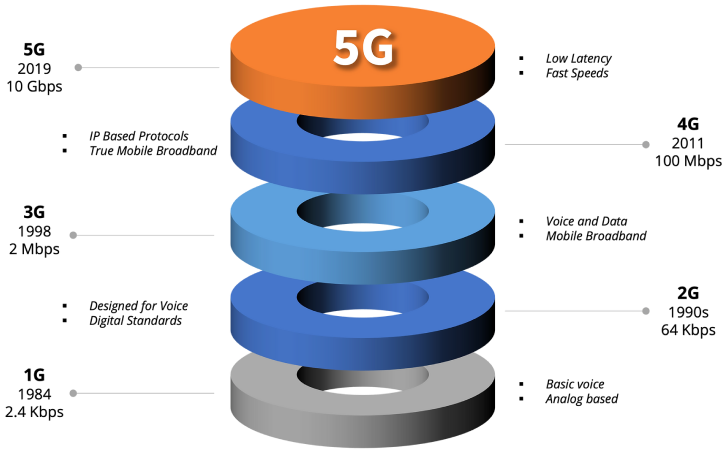Join the
broadband revolution
where speed and innovation drive limitless career opportunities.
What Is Broadband
Broadband Communications is one of the most innovative, diverse, and dynamic industries in North America — and the World — today. No other industry boasts such a wide array of careers, organizations, possibilities, and career growth — from software to services to technical to outdoor work — Broadband has it all!
Drive Digitization And Automation
Intelligent Automation and Economic Contributions

Manufacturing Industries Are Moving Towards Digitalization For Several Reasons, Including Increased Revenue, Increased Demand, Improved Competitiveness, Reduced Costs, And Decreased Risk. A Study Identified Key Challenges And Requirements For Digitization In Industries. These Requirements Include Ultra-Reliable And Instant Connectivity For Millions Of Devices, Low-Cost Devices With Long Battery Life, Tracking Assets In Constantly Changing Supply Chains, Performing Remote Medical Procedures, Using AR/VR To Enhance Shopping Experiences, And Using AI To Improve Operations.
5G Provides A Fast, Reliable, And Secure Broadband Experience And Will Play A Significant Role In Advancing Industry Digitization. It Will Provide The Necessary Networks And Platforms To Drive Digitization And Automation In Industry 4.0, As Well As Support The Widespread Adoption Of Intelligent IoT And Critical Communications Services.
New to Broadband

The 5G Revolution and Job Growth
5G will greatly expand the capabilities of ‘things’ connected to ‘things’ in a range of applications from agriculture to military.
As 5G evolves and is implemented in multiple industries, the marketplace for 5G-related jobs increases. Network operators, managers and professional services firms are required to optimize 5G as it applies to hospitals and healthcare, enterprise, hospitality, retail, government, manufacturing — virtually every industry and business.
Innovators, Startups & Software
Broadband is where innovators find business. As unprecedented levels of public and private funding are invested in broadband, new tools and new thinking are emerging from innovative software and services firms who are reinventing industry and workflows from manual to automated processes and systems.
Technical, Construction & ‘Hands-On’ Positions
With more than $65 billion in public investment from Federal and State governments, plus private investment, there has never been a better time to find career positions in the technical and construction services trades. Network Operators and their technology suppliers are building, managing and operating next generation networks throughout the country — and are looking for help in positions ranging from tower technician to project manager to professional services.
Broadband Evolution

Cellular wireless networks have advanced greatly since the introduction of 1G in 1981, with a new mobile generation appearing approximately every decade. Over the past 30 years, the mobile industry has transformed society through generations of technological revolution and evolution, including 1G, 2G, 3G, and 4G. 1G brought mass-market mobile telephony, 2G brought global interoperability and reliable telephony along with the ability to send SMS text messages. 3G enabled high-speed data transfer and downloading information from the Internet. 4G improved data capabilities and speed and made high-speed mobile internet accessible to the masses. 5G will be the most powerful cellular network with unprecedented data capabilities, unlimited call volumes, and infinite data broadcast.
Role and Impact
Understand the Role and Impact of Broadband in the 21st Century Economy

Telecommunications Serves As The Backbone Of Modern Life – We Depend On It For Work, For Play, And For Staying Connected With Our Loved Ones. Despite This Dependency, Few Of Us Fully Understand How It All Works.
For Modern Telecom To Function, It Requires A Massive Network Of Increasingly Complex Technology, As Well As The Coordination Of Many Different Players Across The Ecosystem.
So What Is Broadband? According To The FCC, The Definition Of Broadband Internet Is A Minimum Of 25 Mbps Download And 3 Mbps Upload Speeds. Broadband Provides High Speed Internet Access Via Multiple Types Of Technologies Including Fiber Optics, 4G And 5G Wireless, Hybrid Fiber Coaxial Cable And Satellite.

What is 5G?
5G networks offer benefits such as lower prices, reduced battery consumption, and decreased latency compared to 4G networks. This is because 5G uses Ultra-Wide Band technology with wider band width and low energy levels. 5G has a band width of 4000 Mbps, which is 400 times faster than 4G. Additionally, 5G can provide billions of connections, support for massive machine communication, and extreme mobile broadband. 5G also has ultra-low latency of 1 ms, increased energy efficiency, ultra-reliability, high peak data rate transmission speeds, and the ability to handle large mobile data volumes.
